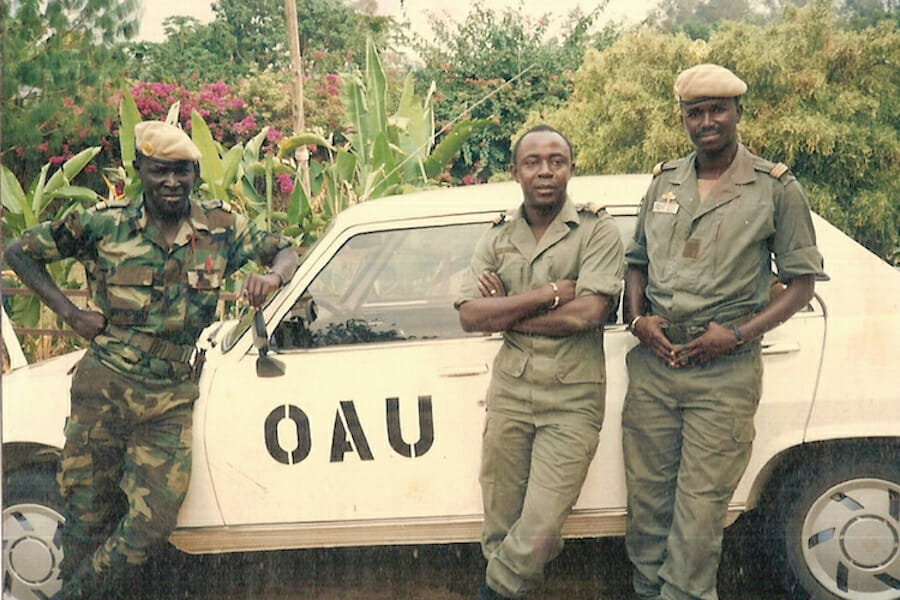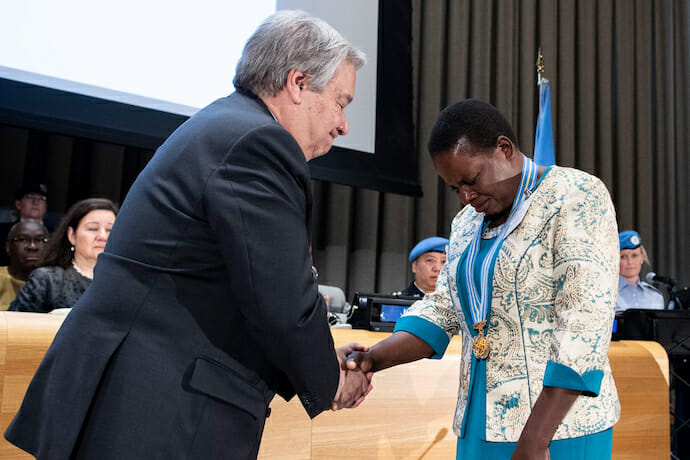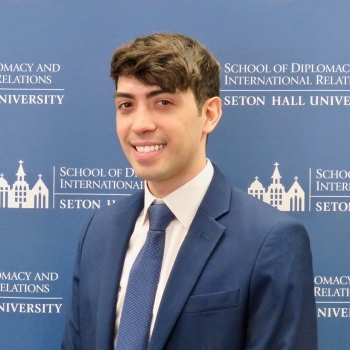
In the Pursuit of Fallen ‘Heroes’: UN Peacekeeping
Ahead of the International Day of UN Peacekeepers, a special recognition ceremony to honor those heroes lost while in service took place on May 24, 2019.
The United Nations deploys peacekeeping forces to conflict zones where a peace treaty has been negotiated to oversee the implementation process, and guarantee that all elements of the agreed plan are established successfully. Since 1948, more than 3,500 peacekeepers have lost their lives in 72 peacekeeping missions deployed worldwide by the United Nations.
Private Chancy Chitete of Malawi was one of the 119 peacekeepers lost in 2018 while serving with the UN Organization Stabilization Mission in the Democratic Republic of the Congo (MONUSCO). The mission aimed at implementing the peace agreement signed in 1999 between the two warring factions that invaded the Congo from Rwanda and Uganda back in 1996 and 1998. The war between these two factions was to take control over the mineral wealth of the Congo. Such actions have turned the Congo into the deadliest war in the world today, which has taken the lives of over 3.5 million people since 1998.
Last November, peacekeepers came under heavy fire while on an operation to stop attacks on a local town in a region of eastern Congo. In efforts to move everyone to a secure location, Private Chitete was killed by rebel fire after saving a comrade. On May 24, 2019, his selfless action and sacrifice was celebrated when Secretary-General António Guterres presented his widow, Lachel Chitete Mwenechanya, with the “Captain Mbaye Diagne Medal for Exceptional Courage” at a ceremony. Guterres called him a “true” hero that made “a personal difference. A profound one.”

The Dag Hammarskjold Medal Ceremony, where another 119 brave men and women who lost their lives were honored this year, was established in 1997 by the UN Security Council. The ceremony is named after Dag Hammarskjold, the second Secretary-General of the UN, who died in a plane crash while trying to broker a peace agreement to end the conflict in what is now Zambia in 1961. During the ceremony, Guterres called his predecessor “a believer in diplomacy and tireless and fearless champion of peace.”
Chitete is the second recipient of the UN’s highest medal for bravery, established by the Security Council in 2014. The first medal was presented in 2016 to the family of Captain Mbaye Diagne, the man whose medal bears his name.
Diagne was a Senegalese UN military observer who saved hundreds of children, women, and men in Rwanda during the 1994 genocide. As a young officer, he was deployed with the UN Assistance Mission for Rwanda (UNAMIR) while Hutus massacred at least 800,000 Tutsis and moderate Hutus. Hutus are the ethnic majority in Rwanda, which has had control over the government since they overthrew the Tutsi monarchy. In 1990, the Rwanda Patriotic Front (FPF), formed by a group of Tutsi exiled rebels, invaded Rwanda and continued fighting until a peace deal was agreed to in 1993.
In 1994, the plane carrying former President Juvenal Habyarimana was shot down, killing everyone on board. Extremist Hutus blamed moderate Hutus and took the event as an excuse for the genocide. The UN did not give a mandate to stop the killing, and the UNAMIR forces left the country. Just two weeks before returning home, Diagne was killed instantly by a bomb that landed behind his jeep.
“He did not ignore his conscience or walk away in fear. He acted from his heart. He was exceptionally courageous,” said former UN Secretary-General Ban Ki-moon during the ceremony in 2016. Ban continued, “while the world failed to act to save the lives of hundreds of thousands of Rwandans, Captain Diagne was fearless in saving as many lives as he could.”
Guterres also presented the Dag Hammarskjold medal posthumously to the other 119 UN peacekeepers from 38 countries while serving in 12 different UN peace operations around the world.
Hammarskjold, Chitete and Captain Diagne’s legacies, along with everyone lost since the first peacekeeping operation was launched, “lives on in the countries where the UN is called on to maintain and promote peace,” said Guterres. In the end, there is no better way to honor the fallen than to never abandon the pursuit of peace and progress.

